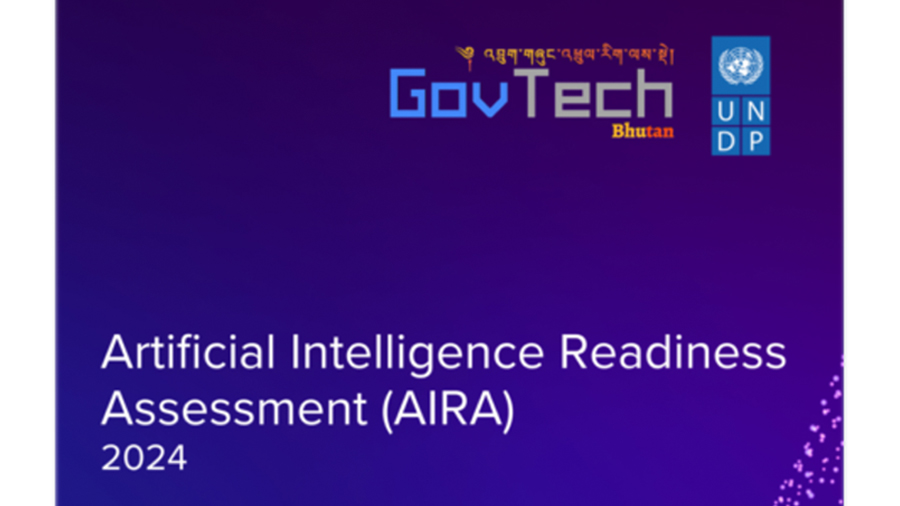 Is Bhutan ready to embrace and integrate Artificial Intelligence into its development plans and governance? Not without its fair share of challenges, if the United Nations Development Programme’s 2024 Artificial Intelligence Readiness report is any indication. The report reveals several hurdles, such as the lack of AI expertise, funding and ethical frameworks and limited education on AI that could impede the country’s vision of incorporating technologies in developmental activities.
Is Bhutan ready to embrace and integrate Artificial Intelligence into its development plans and governance? Not without its fair share of challenges, if the United Nations Development Programme’s 2024 Artificial Intelligence Readiness report is any indication. The report reveals several hurdles, such as the lack of AI expertise, funding and ethical frameworks and limited education on AI that could impede the country’s vision of incorporating technologies in developmental activities.
The 2024 AI Readiness Assessment report evaluates Bhutan’s preparedness to adopt artificial intelligence across governance and public services.
According to the report, one of the biggest challenges is the shortage of skilled AI professionals. The country lacks undergraduate programs in AI, machine learning, software development, and data science, resulting in a shortage of skilled graduates.
Current efforts to address this gap, including introducing AI-related courses in universities, are still in their infancy.
Another challenge is limited funding for AI research and innovation, making it difficult for government agencies and private companies to innovate and test AI solutions.
Additionally, the lack of ethical AI frameworks to ensure accountability, transparency, and safety in AI systems is another challenge.
The report recommended developing a comprehensive national AI strategy to guide AI adoption across sectors.
Another recommendation was to establish robust ethical frameworks to ensure transparency and accountability and to strengthen the data governance by creating centralised data sharing protocols.
Additionally, it recommended investing in AI education to build a skilled AI workforce.
Meanwhile, the GovTech Agency is already working on the proposed recommendations. GovTech officials said they are instituting a Centralized Data Sharing Platform to give easy access to data, and a comprehensive National AI strategy is currently being drafted.
The dream of an AI-powered Bhutan remains within reach so long as the gaps highlighted in the report are addressed efficiently.
Kinley Bidha
Edited by Phub Gyem







